Relevant Overviews
- Bluesky and the ATmosphere
- Communication Strategy
- Content Strategy
- Fediverse
- Online Strategy
- Online Community Management
- Social Media Strategy
- Content Creation & Marketing
- Digital Transformation
- Innovation Strategy
- Surveillance Capitalism, Social media and Polarisation (Overview)
- Communications Tactics
- Psychology
- Social Web
- Media
- Politics
- Communications Strategy
- Science&Technology
- Business
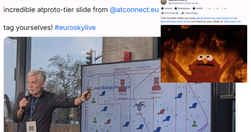
"Large organisations need dedicated tools and processes to manage their Bluesky presence and get the most out of ATproto".A repost onto Medium of version 4 of a wiki page I've been developing for most of the year.
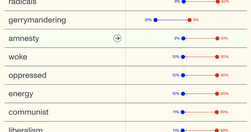
"Could seeing how opposite sides of the US political spectrum use the same words differently be a first step toward greater cross-political understanding?... What if generative AI could help us understand people with opposing views better just by showing how they use common words and phrases differently?"MIT's Bridging Dictionary (BD) research …
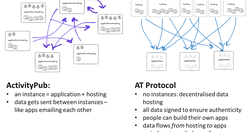
My mid November 2024 newsletter summarises how a deep dive into Bluesky has changed how I view #AI4Communities, and summarises some of the most influential things I've read recently.

Profile of New_Public, founded by Eli Pariser of Filter Bubble and Upworthy fame, and Deepti Doshi "from from Meta, where she’d spent much of her tenure leading the company’s Community Partnerships... supporting, Facebook group admins... as well as UT Austin professor Talia Stroud, who remains on the board, and their drive to stimulate "citizen-dr…

The Initiative for Digital Public Infrastructure's manifesto sets out the three legs upon which an open public sphere must rest.

Michael Foster's "top ten unfinished building blocks" are:trust & safety: "heart of an ethical social web... [currently] delegated to a small group of volunteers... [but] green shoots emerging"spam filters: "there are some amazing tools now... Pixelfed has shown what can be done"safe spaces / bridging & federation: 2 closely linked challenges whic…

"A deep dive into Robert Putnam's Bowling Alone", over 20 years later, by "former New_ Public Research Fellow Serena Chao".Social capital, according to Putnam, "is the “connections among individuals — social networks and the norms of reciprocity and trustworthiness that arise from them”... [making] a strong case for a correlation between thriving,…

One of my favourite writers/thinkers on all things digital future is "finally, definitely, fully leaving X, and probably all social media..."

"Our digital public sphere has been failing ... [but] History offers a proven template for how to build healthier public spaces."Filter Bubble author Pariser hearkens back to Walt Whitman's creation of NY's Green Park, when "New York City had no public parks ...only walled commercial pleasure gardens for those who could afford". He saw American de…

ActivityPub separates content from platform. Posts from one platform propagate to other platforms, and users don’t need an account on every platform ... for ex., YouTube clone PeerTube and Mastodon both implement it, so is Mastodon user A follows PeerTube user B, B's new videos will appear in A's Mastodon feed. A can even comment on it from Mastod…

In the US, radio began as a free-market free-for-all. More than five hundred radio stations sprang up in less than a decade to explore the possibilities... 40 percent were noncommercial... network of interlinked stations playing local and national content supported by local and national advertising, became dominant players...Soviet Union... ideolo…

news industry trade associations are corruptly cashing in their political capital ... their members are newspapers, and politicians are scared of them — in desperate acts of protectionism to attack platform companies. The result is a raft of legislation that will damage the internet and in the end hurt everyone, including journalists and especiall…

the capacity to spread ideas ... no longer limited by access to expensive... infrastructure. It’s limited instead by one’s ability to garner and distribute attention. And right now, the flow of the world’s attention is structured... by just a few digital platforms:... tincreasingly stand in for the public sphere itself... at their core... They’re …

The permanent banning of uber-troll Milo Yiannopoulos from Twitter was probably long overdue. It's time for non-trolls to stop complaining and start defending civility in our social spaces, or simply decamp to build better ones.

There will never be an ‘EU superstate’ as long as the national presses of 28 countries are presenting 28 different visions of the European dream... there is no real union if members can’t watch together, read together, instinctively think and bind together. No news means no common purpose... A continent of many languages has no means of building b…
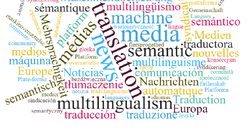
EurActiv.com is opening one of its media innovations to other media interested in increasing competitiveness through translated syndication. (Update, 31/3/16: this project was covered, among many other things, in an interview with professional EU interpreter Alexander Drechsel in his podcast Demos ex machina? Multilingual communication with Mathew…

"So you think “President Trump” is the worst case scenario?" - Some thoughts, originally on my oldblog and then updated on Medium:

So you think "President Trump" is the worst case scenario? The rise of American authoritarianism provides the best article I've read explaining the Rise of Trump, even if it's a bit longer than previous favourites. It covers psychological research into authoritarianism, the profile characterized by a desire for order and a fear…
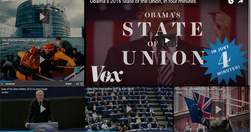
A short post on the financial costs of not having a European Public Sphere.
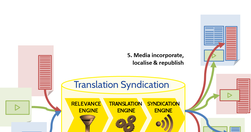
The afternoon session at Future Media Lab 2016 showed that while European media are warming to the idea of using advanced language technologies to share content across borders, their audiences are already well ahead of them.

With independent journalism increasingly looking like an endangered species, a EU communication strategy that helped European media build the European Public Sphere would be a smarter longterm move than propaganda and brochureware
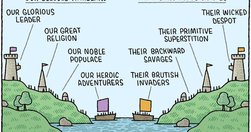
the idea that everyone is like us is called the “false-consensus bias.”... Online it means we can be blindsided by the opinions of our friends or, more broadly, America... morphs into a subconscious belief that we and our friends are the sane ones and that there’s a crazy “Other Side” ... that just doesn’t “get it,” ... not as intelligent as “us.”…

The extremist adherents of this new political correctness have essentially taken a flamethrower to the public space and annihilated its center. Topics in American life that once were the legitimate subjects of debate between liberals and conservative are now off-limits and lead to immediate attack by the cultural establishment if raised at all. An…
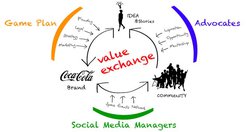
Do people really want to have a conversation with brands, or their government?

An array of sophisticated language technologies could help ideas flow across EU borders, link national conversations together and support the EU Online Public Sphere - the demos the EU needs. But BloggingPortal is unlikely to feature them. [update (17/5/15): I finally decided to kick Medium's tyres by reposting this there, with less history. …

"Q. Is it realistic to think that a European public sphere could ever be created? TGA: My view is that we should try, but we shouldn’t ever kid ourselves that this is going to be like a national public sphere. Apart from anything else, we speak different languages, which is a huge barrier. The key for me, in continuing to make the argument for …

Is primetime TV advertising the right way to connect citizens to the EU?
If you care about EU democracy you need to care about European media, particularly as the upcoming US media invasion gets underway. They'll be pushing on an open door when they get to Brussels.
As I mentioned in my previous post, the past couple of years have seen a lot of innovation in online content strategy, coupled with growing disenchantment with "Big Internet".

"Though the political conversation about Europe has gained in importance everywhere in recent years, the truth is that Europeans are not having the same conversation. That is a serious problem for Europe’s leaders: the electoral earthquake is big enough for them to feel compelled to respond to their citizens’ economic and political discontent; but…
Relevant Overviews
- Bluesky and the ATmosphere
- Communication Strategy
- Content Strategy
- Fediverse
- Online Strategy
- Online Community Management
- Social Media Strategy
- Content Creation & Marketing
- Digital Transformation
- Innovation Strategy
- Surveillance Capitalism, Social media and Polarisation (Overview)
- Communications Tactics
- Psychology
- Social Web
- Media
- Politics
- Communications Strategy
- Science&Technology
- Business